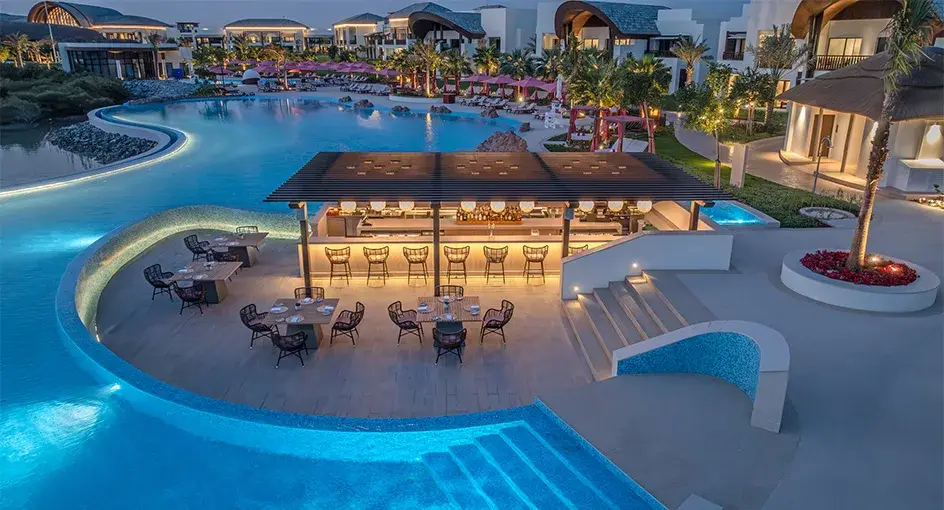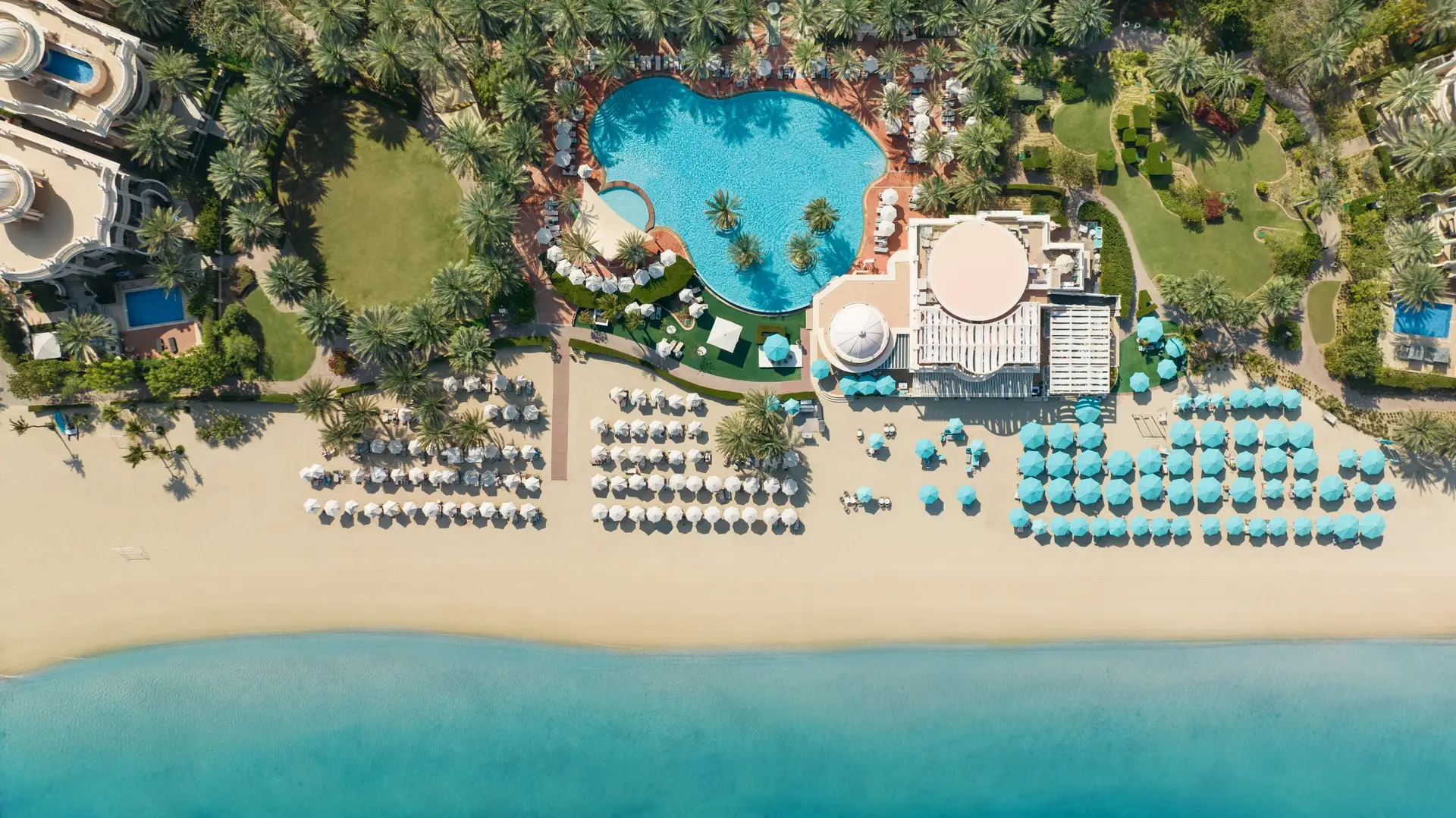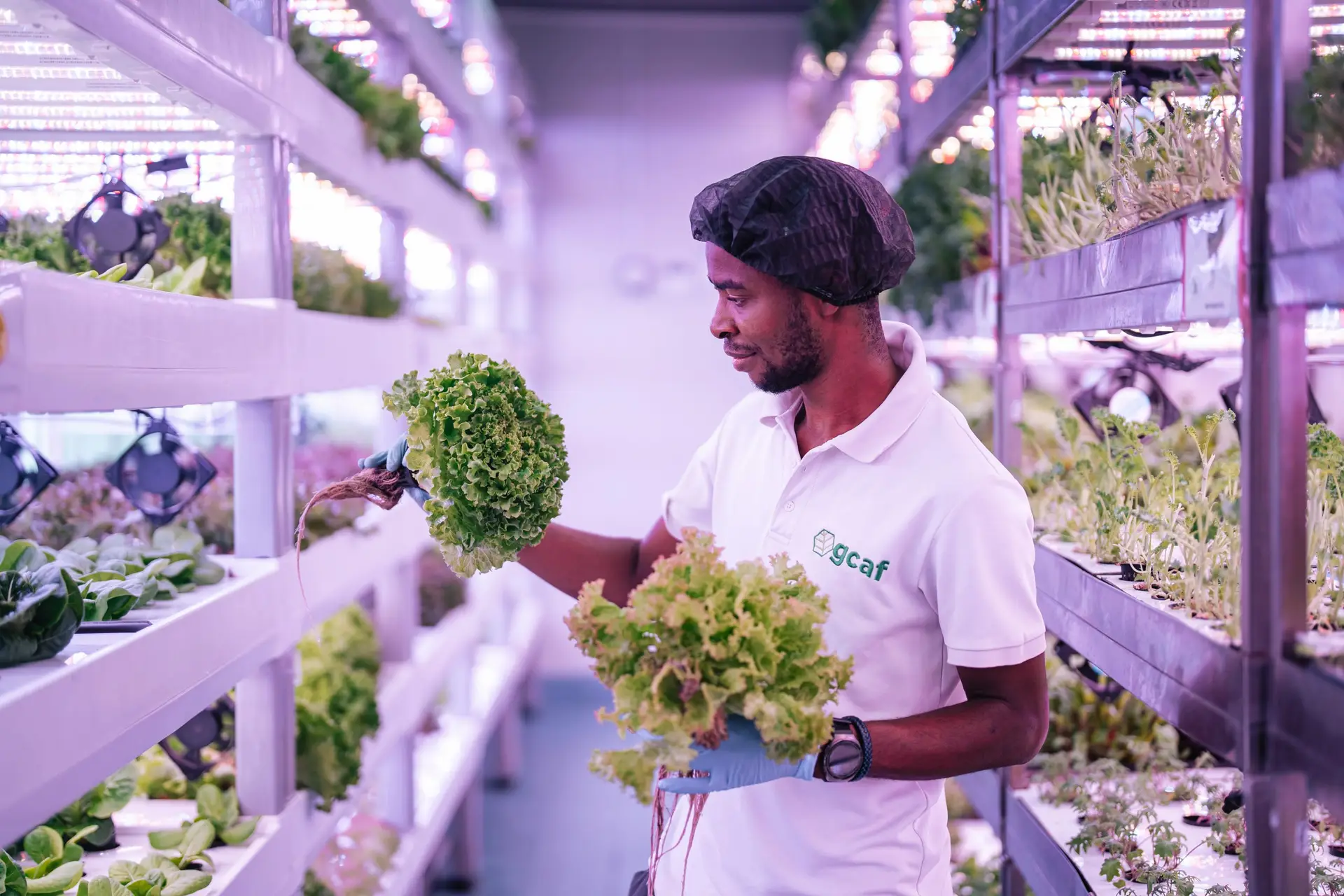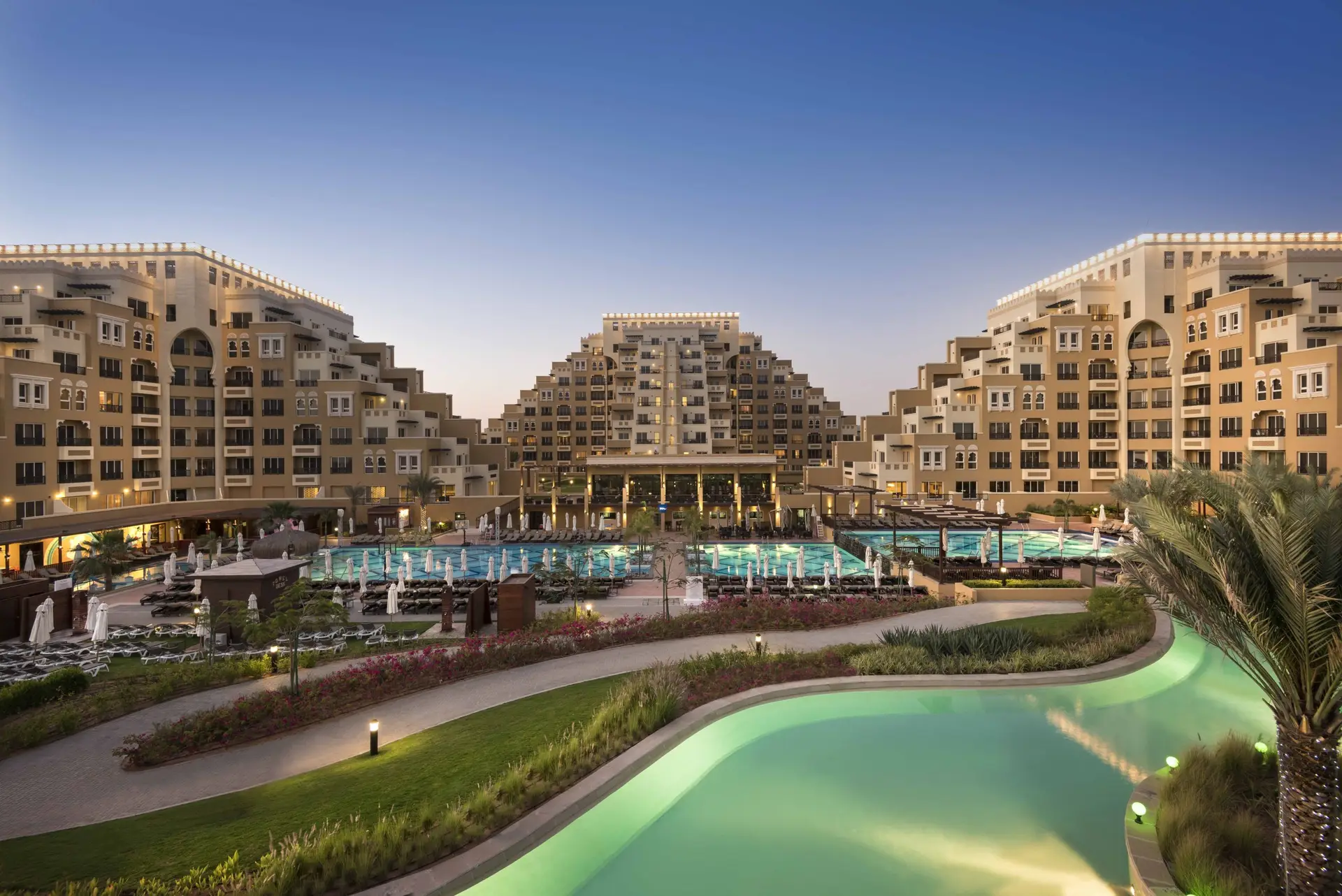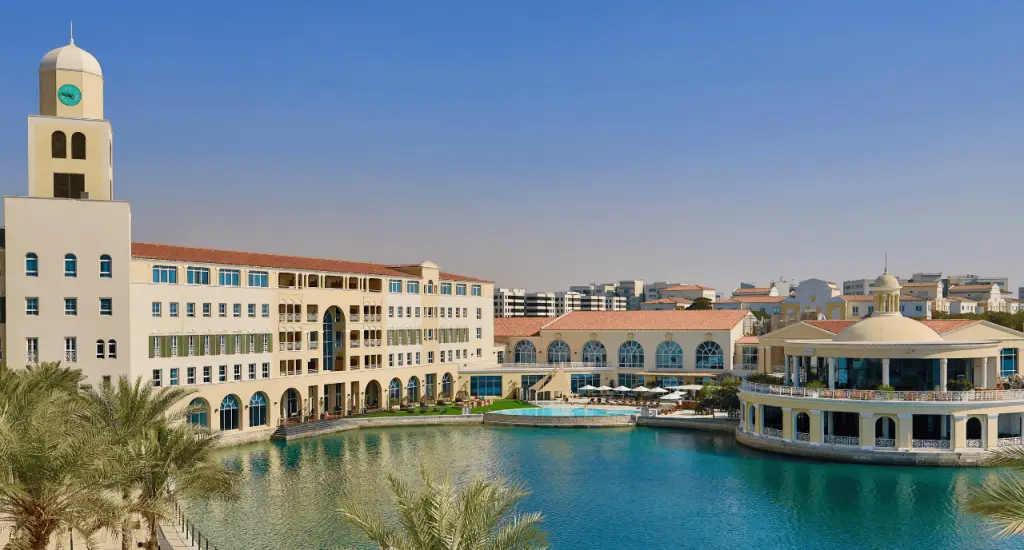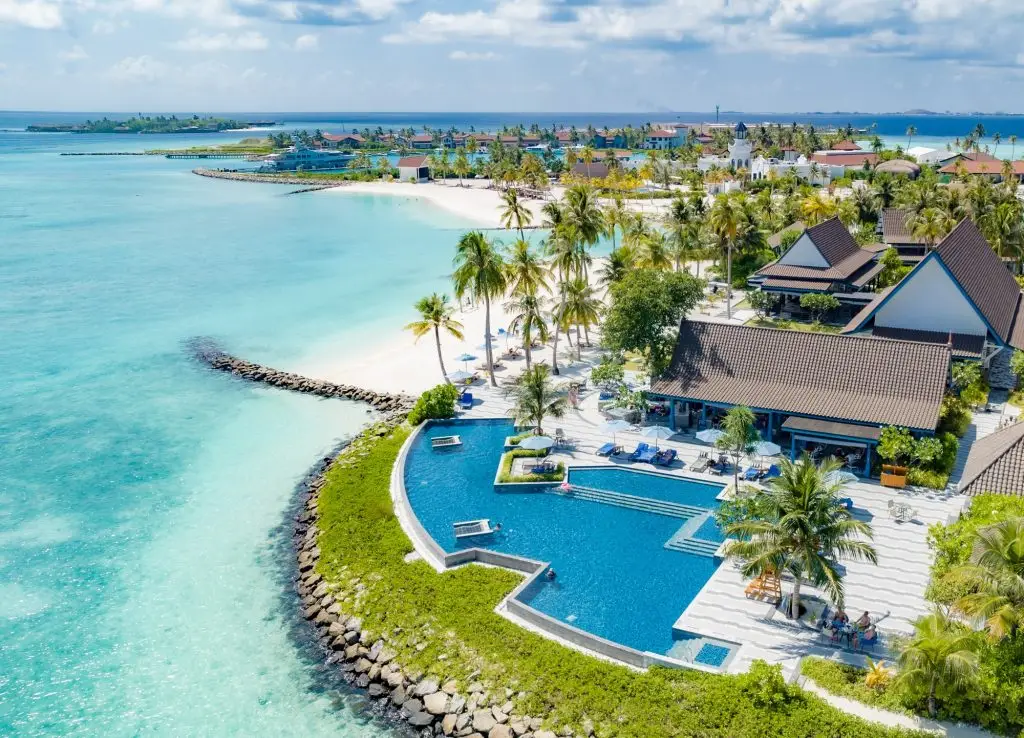3. Conrad Dubai: Sustainability efforts that go beyond greenwashing
In 2010, Hilton launched its ESG program, TwP, committing to a 50% reduction in environmental impact and a doubling of social impact by 2030, encompassing over 7,800 hotels. Conrad Dubai initiated its ESG efforts approximately three years ago and now operates with over thirty initiatives.
Conrad Dubai implements recycling practices for cartons, cans, glass, plastic, paper, used cooking oil, and organic food waste, partnering with Beeah for daily collection and data reporting via LightStay. Their “Green Ramadan” initiatives in 2023 and 2024, in collaboration with Hilton, UNEP West Asia, and other partners, utilised Winnow’s AI to track food waste, sourced ingredients within a 50-mile radius via FreshonTable, promoted plant-based options and smaller portions, composted food scraps with WasteLab, and donated surplus food to the UAE Food Bank, resulting in a 61% food waste reduction and the donation of approximately 4,000 meals in one year. They also manage organic food waste internally and partner year-round with the UAE Food Bank, including distributing 1,800 meals during the ‘1 Billion Meals Endowment Campaign’.
Further waste management efforts include composting with WasteLab, aiming to connect local farms and hotels for crop repurchase, and the forensic measurement of food waste using Winnow’s AI. Local sourcing is prioritised with FreshonTable, aiming to double local produce procurement. Culinary teams employ zero-waste techniques and focus on plant-based innovation. Conrad Dubai collaborates with Klimato to calculate and monitor carbon footprint emissions. The Green Breakfast initiative, aims to reduce food waste across breakfast operations, which serve 1.5 million guests annually across 12 properties including Conrad Dubai.
Meatless Wednesdays are observed in the employee cafeteria.
Additional sustainability initiatives at Conrad Dubai include a hydroponic farm yielding 11 kg of produce daily, a lemonade drive-through for taxi drivers, a 91% reduction in plastic bottle usage, linen reduction encouragement, the use of chinaware for coffee breaks, digital menus, efforts towards zero-waste cocktails, the elimination of plastic straws, replacement of single-use amenities, a Nespresso capsule recycling program, substitution of plastic covers and bags with sustainable alternatives, a linen sustainability program reducing water and energy consumption, linen and uniform recycling (560 KG recycled), clothes donation drives with KISWA, guest rooms equipped with segregated dustbins, a project to plant 350 Ghaff trees, participation in Can Collection Day with EEG (mitigating 1.05 metric tons of CO₂ in one instance), the One Root, One Communi-Tree initiative with EEG (collecting 2,000 kg of paper and 1,400 kg of glass), the “For Our Emirates We Plant” program (qualifying for five trees at a reserve), sustainable spa practices with local suppliers and aluminum bottles, installation of energy-efficient heat pumps and water-saving fixtures, LED lighting conversion (40,000 bulbs replaced), an EV charging station, and air-to-water technology for on-site water sourcing.
